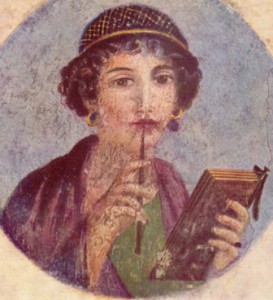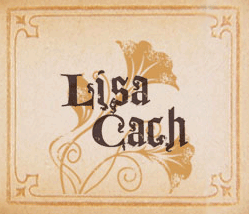Most readers assume that an author gets to give her book its title. Not necessarily so! And I suspect they also think titles are easy to come up with…. definitely not so! Here’s a peek inside the world of choosing titles, gleaned from my ten-plus years as a published author.
My very first published novel, a comic time-travel romance, started life with the horrendous title One Free Husband. I shudder to think of it… and yet that was the title I put on it when I submitted it to publishers. After the miracle happened and I sold the book to Dorchester Publishing, my editor suggested The Changeling Bride as a title, and we ran with it.
It wasn’t until the book came out that I discovered that a lot of people had no idea what “changeling” meant. (Changeling: n., a child left by fairies in place of a human infant.)
Lesson learnt: do not use unusual vocabulary in a title.
A title also must be easy to pronounce out loud, otherwise you get:
“What’s your book called?”
“The Whydess-shhore.”
“What?”
“The Wyyylllll-DEST Shore.”
“The Widest Store?”
“The Wildest Shore!”
“Uh. Mm. Right.”
It also should be unique. If someone searches for it on Amazon, you don’t want a dozen other books with the same title coming up. Try it. Make up a book title that sounds a little romantic or paranormal, and search on it on Amazon. Has it already been used? Yes? Eight times, you say? Bummer.
And then there’s the, “Will conservative bookstores carry it?” concern. You don’t want to risk a store not carrying your book because you put words like “witch” or “demon” in the title, even if there are witches or demons lurking in the book. I mean, jeepers, even Harry Potter got banned in some places because of magic and wizards. One of my books started life as The Raven Witch but ended up Bewitching the Baron. I still like The Raven Witch better as a title, but oh well; I just tell myself that it’s camouflage, helping the book sneak into the hands of someone who would love the book but lives where a story with a witch as the heroine (oh, excuse me; she’s a healer, not a witch. Ahem.) would not be on the bookstore shelves.
Several of my best book titles were thought up by editorial committees and marketing departments. Dating Without Novocaine was one of those. Great title! They’ve also come up with some of my least-favorite titles, like The Erotic Secrets of a French Maid. My maid isn’t of the French variety, and the story is a bawdy romantic comedy, so I got readers complaining on Amazon about how the title was misleading. They were expecting less laughter and more erotic secrets. I agree it was misleading, but I was given no choice; my future contracts will have a clause about getting my approval. Not that that will stop my books from getting lousy titles.
Case in point:
People hate my title George and the Virgin, a title I’m at least half responsible for. It’s a comic time-travel romance about a professional wrestler whose stage name is St. George; the ‘real’ St. George was famous for killing a dragon. Anyway, wrestler George goes back in time to kill a fire-breathing dragon and rescue a feisty virgin (who doesn’t want to be rescued as she’s handling things quite well on her own, thank you) and has many comic misadventures along the way. So, er, that’s why my editor and I came up with George and the Virgin for the title, which we also thought would be a funny name for a rock band; our only real debate was whether to use a singular virgin or plural virgins. People unfamiliar with the story, however, could only think of some man named George trying to have his way with a virgin. All I can say in the title’s defense is that it was better than the alternatives, several of which sounded like venereal diseases.
A few of my titles are rip-offs of famous titles: A Babe in Ghostland is a play on the musical Babes in Toyland. Dr. Yes is a play on the James Bond story Dr. No. Sometimes this type of title seems brilliant and funny, and another advantage of such titles (besides for being easier to think up than something fresh) is that they play with a phrase that’s already familiar to the reader. People like the familiar, and have an easier time remembering it. The downside is that, well, they’re rip-offs. I never quite feel that such a title is really mine.
My very favorite titles are inspired by snatches of poetry or songs, which leads me to my latest title, Wake Unto Me. If you don’t recognize its origin, look to old-timey composer Stephen Foster, and imagine Bugs Bunny singing it:
Beautiful dreamer,
Wake unto me,
Starlight and dewdrops
Are waiting for thee.
Unfortunately, I’ve discovered a new rule about titles: don’t use unusual prepositions like “unto.” My agent keeps calling the book Wake Onto Me, and someone else called it Wake Into Me. Sigh….
In the end, though, this is why my editor decided this title would work:
“Wake Unto Me… has an ethereal quality that I really like and lends itself well to paranormal and romance.”
I agree.
The next time you read a title that makes you thrill in excitement or shudder in revulsion, know that there were weeks – or months! – of thought behind it, and it was absolutely the best anyone could come up with.
And if you’re feeling generous, do us authors a favor and pretend that all the great titles are from our own brains, and the lousy ones came from the marketing department. Thanks! We appreciate it.


